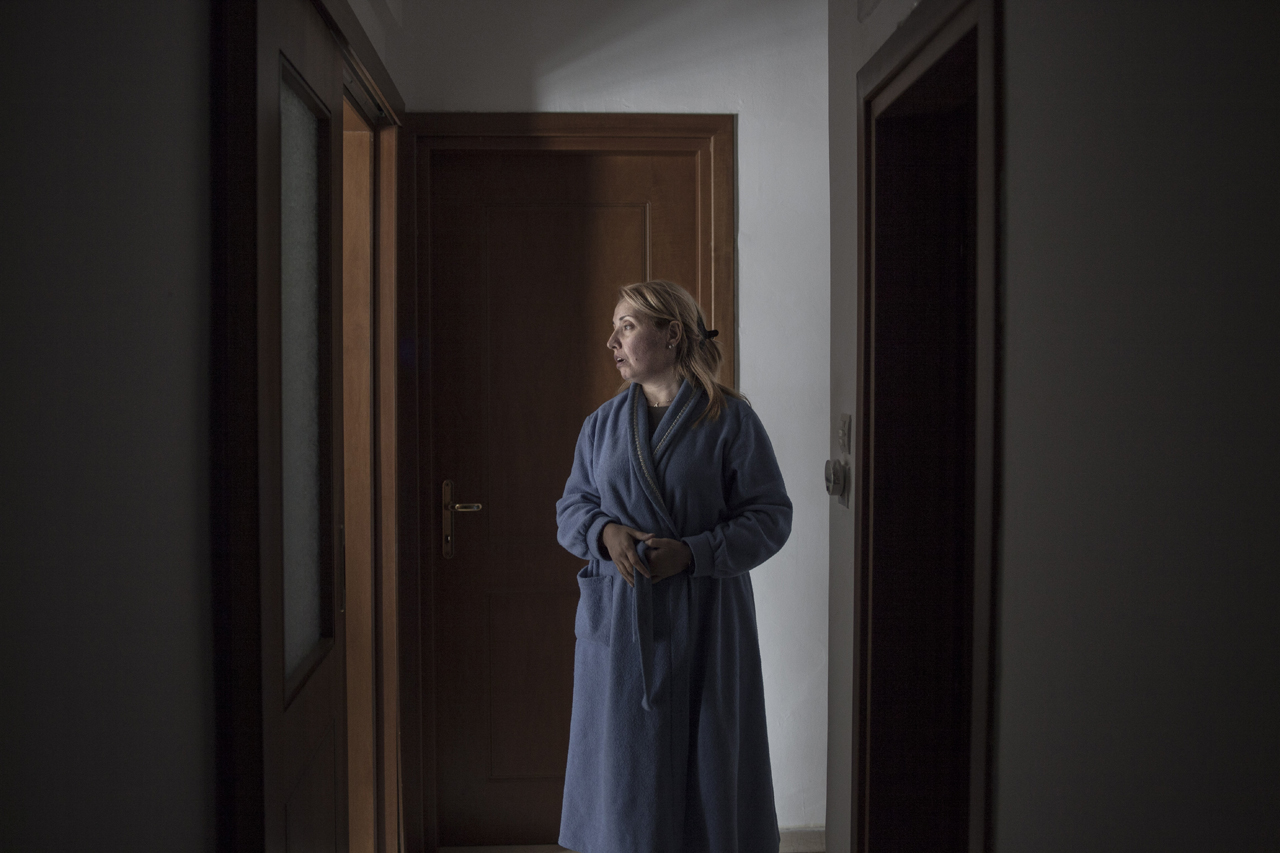-
-
The time I spent with Panagiota and Manolis made me see that: even if one was to understand medicine and know about MS, Greeks in general prefer to stay away from people with MS.
a
Showing me photographs when he was younger, Manolis tells me that at the time when he was diagnosed, his girlfriend decided to leave him. Manolis knows this is because he was diagnosed with MS. Panagiota has a similar story, with the addition that not only her then husband left her, but also most of her friends. I find it shocking to learn that Manolis' ex-girlfriend was a nurse-in-training and Panagiota's ex-husband was a medicine professional. Panagiota's husband also had the 'courtesy' to abandon her and take all their life's savings with him, leaving her with nothing. She had to go back and live with her 80 year old mother.
a
One would imagine that knowledge of MS should rather substantiate an objective outlook of life with MS and how important relationships are to a person with MS; or anyone with any long term condition for that matter. However, it appears that Greek society's pre-conceived notions of "something" happening to you, or to a member of your family, is the dictating factor in assessing any human relationship altogether.
a
With this in mind I found it amazing that Vasiliki has, pretty much, soldiered on through her career as a special needs PE teacher and lecturer. Lefteris, her partner, is amazingly supportive and loving. Vasiliki's experience of MS is a clear example of the opportunities that should be available to any person with MS in Greece: work, friends, life. As it stands, however, even if the government could solve the economic woes that affect the health services in Greece, the largest challenge I see facing people with MS in Greece today is the understanding and acceptance of their own society.
a
From the Under Pressure website:
a
http://www.underpressureproject.eu/web/country-profile/greece
a
MS has increased significantly in Greece, in recent years. Although the legal situation is favourable to MS patients on paper, the economic reality often prevents realisation of legal promises. Availability of free medicines is threatened by the economic austerity measures. As a consequence, life has become harder for people with MS. Disability benefits have been reduced; now only severely disabled people receive allowances. Despite the existing legislation, there is general lack of accessibility for people with disabilities in Greece, which leads to social exclusion.
a
On the positive side, any person who has worked for 15 years has the right to get an old age pension equivalent to a healthy person of 35 years of work, without having to wait until the age of 65.
a
While in 2011 the employment estimates for people with MS living in Greece were 35% employed full time, another 20% part time; in 2013 the situation is reported as unknown.
-

Thessaloniki, Greece, 10/2011 • “Alone, alone, alone,” says Panagiota Tsinonis, describing her life since being forced to stop working because of MS. Previously an oncology surgeon with an active social life, she finds that friends drifted away and that the loss of balance limits her own movement through the few blocks around her apartment. Like many PwMS, Panagiota Tsinoni has found new friends within the local MS community. This network provides support in hard times and also celebrates successes: tonight, she and others will help fellow patient Manolis Tsatsiadis “warm up” his new apartment.